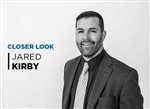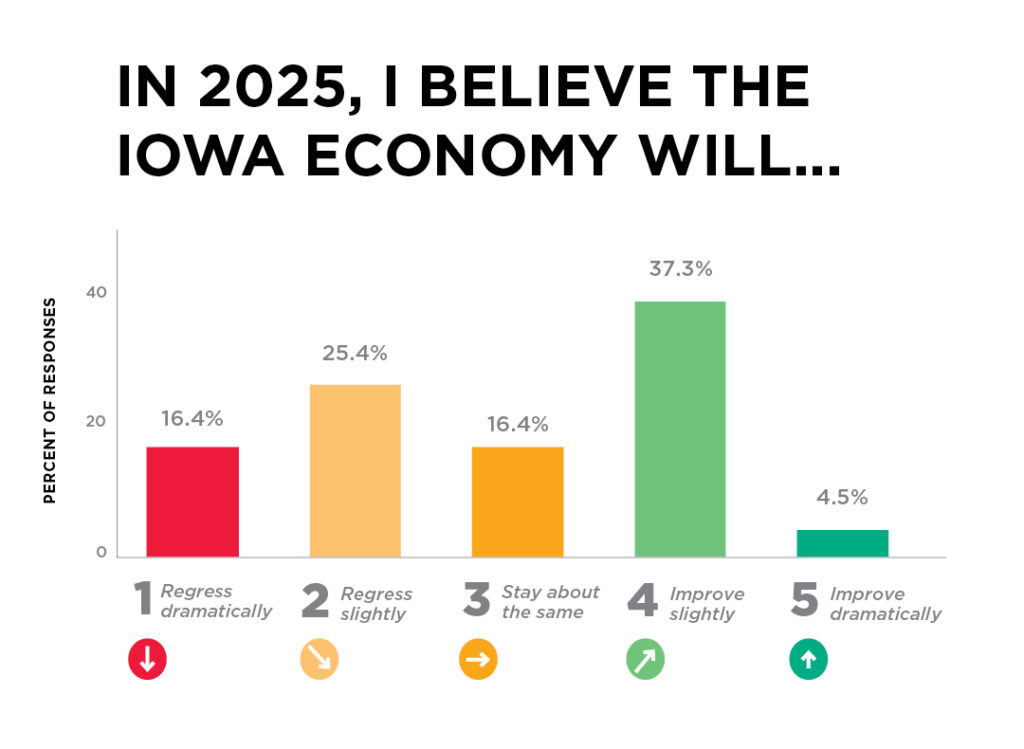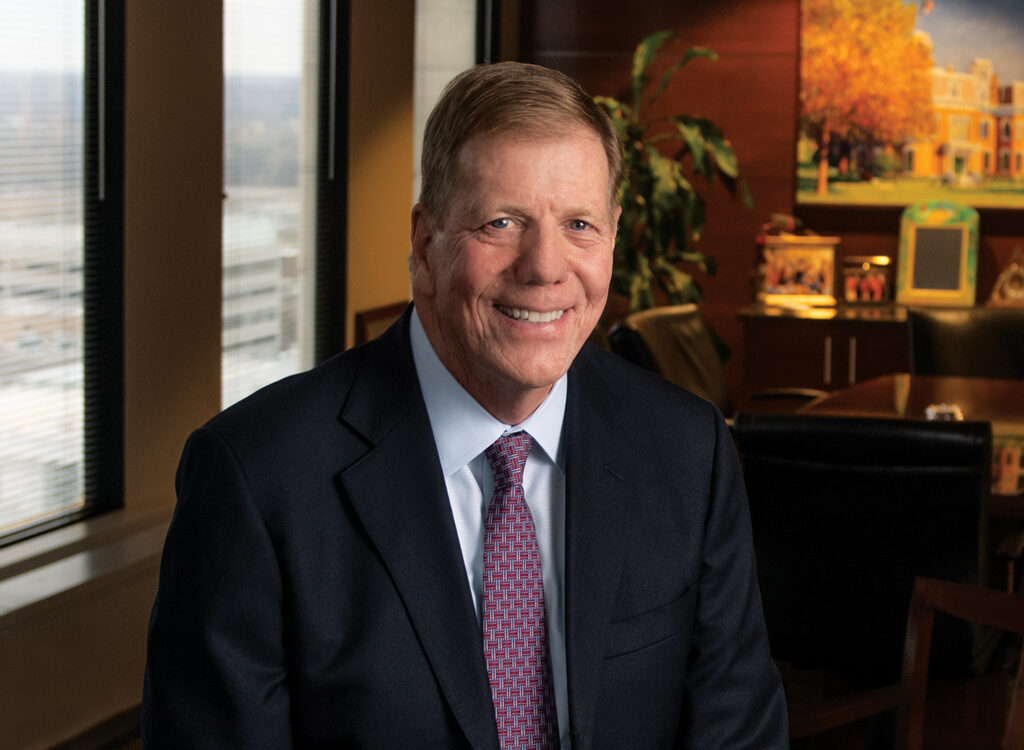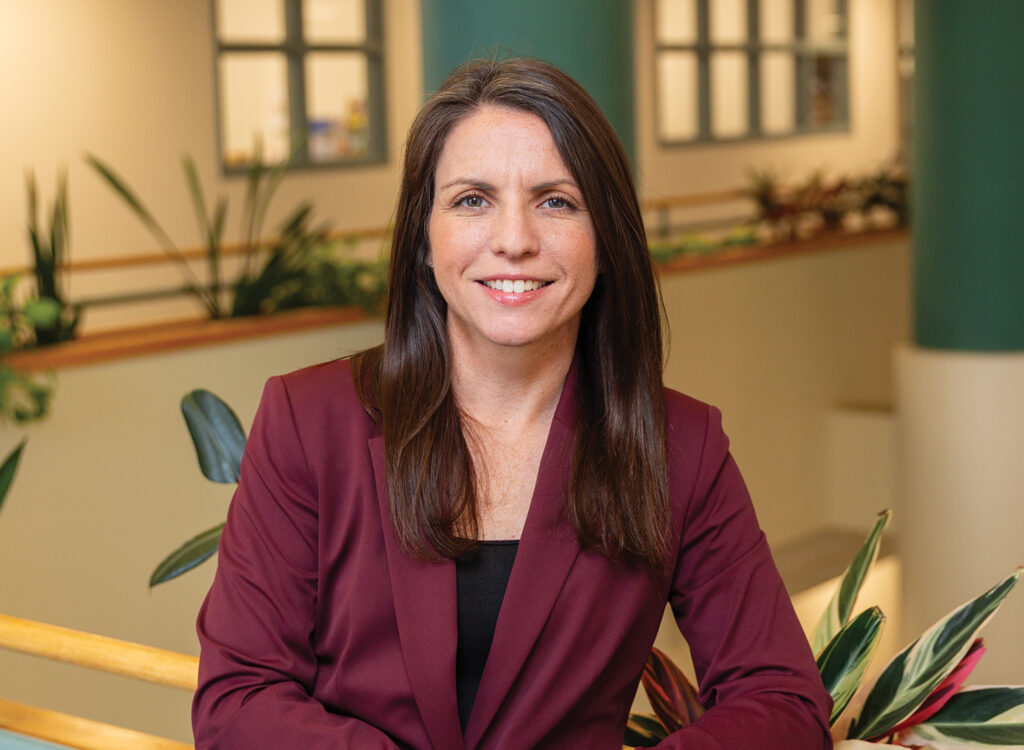A Closer Look: Jared Kirby
Deputy insurance commissioner for market regulation, Iowa Insurance Division

Jared Kirby was appointed in October as deputy insurance commissioner for market regulation. In that position, he leads the Iowa Insurance Division’s Market Regulation, Fraud, Consumer Advocacy Office and Enforcement Bureaus. He will also represent Iowa at the National Association of Insurance Commissioners and the North American Securities Administrators Association. He has been a law enforcement officer in the Iowa Insurance Division’s Fraud Bureau since 2006, leading the Fraud Bureau as chief since 2014. He has also been the division’s Market Regulation Bureau supervisor since January 2017 and Consumer Advocacy Office supervisor since March 2019. Before working for the Iowa Insurance Division, Kirby was previously a police officer for the Centerville and Johnston police departments.
How did you get started with the Iowa Insurance Division?
I started out as a special investigator, and you are assigned to all lines of insurance with those cases. It’s not really very similar to what a detective is working on. … So you have to expand yourself into that insurance company arena and their processing of claims and understanding the dynamics behind that claim payment, as well as the responsibilities of the consumer that they insure in those cases.
How do the insurance division’s investigators get training?
We work with groups like the International Association of Special Investigative Units. They put on an annual training that is really specific to what a criminal investigator does or an investigator with an insurance company. So essentially claims fraud, whether it’s in the health, property-casualty or life arena. So we don’t have to go too far to find very specific training that suits our needs.
What are the primary roles of each of the bureaus?
The Insurance Fraud Bureau has six law enforcement officers and one criminal intelligence analyst; their primary duties are to pursue investigations against insureds that commit crimes against insurance companies, [such as] fraudulent insurance claims. They also pursue fraud in sales practices related to any of the lines of insurance products. Earlier this year we were also able to get a securities fraud investigator.
The Market Regulation Bureau is really the front line for consumers to call if they have a problem with their insurance company, agency or producer. We have six insurance complaint analysts who investigate complaints.
Another bureau, if you will, is the consumer advocacy officer. She [Sonya Sellmeyer] takes consumer feedback about rate increases for individual health policies; she also works with our Market Regulation Bureau as an independent person who can look at determinations and help consumers understand why the bureau took the position it did, or be able to review it.
The Enforcement Bureau is staffed with five attorneys and one paralegal; cases are forwarded to them by the Market Regulation Bureau for them to file administrative actions against individuals.
How does being in an insurance hub like Iowa affect your role?
It’s really an awesome opportunity to be working in this financial services industry in Iowa. There are so many people so close to us within blocks that can come over and talk with our office, whether it’s to voice concerns about handling some matter or asking for advice and our position on a particular matter. There are a lot of experts who are willing to help bring us up to speed on any of the areas that they’re working on. Having said that, you do feel like you’re trying to keep up all the time in various areas of their specialties, with respect to innovation and things of that nature. We’re learning together with them. … We’re both being educated by the environment and the needs of consumers.
Have technological advances made detecting insurance fraud easier?
[I recently attended an event] where our criminal intelligence analyst was doing a speech to an industry group, teaching them about some of the things he is seeing with respect to technology used in claims payment. There are various technologies used to analyze evidence or materials being received to accompany claims. For example, with photographs there are procedures we are using to look at the metadata and various aspects of photographs or other documents to determine legitimacy. The point of the conversation was that the technology isn’t all quite there yet — it’s not perfect. So there still has to be the human element in investigations; we can’t lose sight of that.
What was your scariest moment as a police officer?
We’re trained in the academy and we’re trained in our police departments not to stand in front of the doorway when you knock; you stand on the side of the door. In Centerville I was [dispatched] to a late-night loud disturbance in an upstairs apartment. I walked up to the door, stood to the side and knocked on the door and said, ‘Police department, open up,’ and a sword came through the door, right just above knee level. … We ended up going into the apartment and the person had mental health issues and had been off his medication. We took care of the situation, but that would be one that I certainly remember.
What do you enjoy doing in your off time?
I have two sons, ages 13 and 11, and they’re both in 4-H groups. We have a small hobby farm east of Des Moines with some livestock and a variety of animals, and so we spend a lot of time with that. And of course with the 4-H groups, there’s a shooting club that my boys are involved with, and they do tournament shoots. But at this point, I spend a fairly substantial time at the insurance division; it’s not a 40-hour week, like a lot of private sector jobs. There are some positions to fill in our insurance division, and I’ve been working pretty aggressively to get people up to speed.









